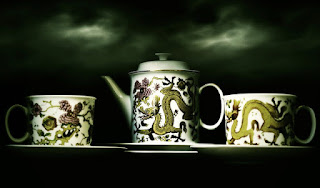Embark on a journey through time as we explore the captivating history of tea, from its mythical origins in ancient China to becoming a global cultural phenomenon. Discover the Chinese tea origins, trade routes, British tea culture, the emergence of Ceylon tea, and the modern evolution of tea production. Join us on a voyage through the ages, where tea transcends borders, connects cultures, and weaves a rich tapestry of tradition.
Ancient Beginnings in China
Legend has it that the discovery of tea dates back to 2737 BCE in China, during the reign of Emperor Shen Nong. As the story goes, a few tea leaves accidentally fell into the emperor's boiling water, creating a fragrant infusion. Intrigued by the aroma and flavor, Emperor Shen Nong tasted the concoction and discovered the beverage we now know as tea. Explore the Chinese tea origins that set the stage for centuries of cultural and trade significance.Early Uses and Spread
Initially consumed for its medicinal properties, tea gained popularity during the Tang Dynasty (618-907 CE) as a recreational beverage. By the 8th century, tea had become an integral part of Chinese culture, leading to the establishment of the first tea plantations. Trace the tea trade routes along the ancient Silk Road, connecting Central Asia, the Middle East, and Europe, and discover how tea caravans played a crucial role in connecting cultures and fostering economic exchange.Tea in Sri Lanka
Sri Lanka, formerly known as Ceylon, plays a pivotal role in the global tea story. Introduced by the British in the mid-19th century, tea cultivation quickly became a cornerstone of the island's economy. James Taylor, a Scottish planter, is often credited with establishing the first commercial tea plantation in Sri Lanka in 1867. Explore the emergence of Ceylon tea, renowned worldwide for its briskness, brightness, and variety, as we delve into the history of tea on this lush island.The British Tea Obsession
The 19th century saw significant changes in the tea industry, marked by the Opium Wars between China and Britain. To secure a stable tea supply, the British expanded tea cultivation in India, including Sri Lanka, and other colonies, leading to the establishment of large-scale plantations. Immerse yourself in the British tea culture, where the East India Company played a pivotal role in shaping the global tea trade and fueling the British tea obsession.Modern Tea Production
As the world entered the modern era, tea evolved into an incredibly diverse beverage with countless varieties and preparation methods. Green tea, black tea, oolong tea, and herbal infusions each offer unique flavors and health benefits. Discover the modern evolution of tea production, with a focus on sustainable practices and innovations that ensure the continued global popularity of this ancient beverage.Global Tea Culture
Tea culture continues to flourish globally, with tea ceremonies, festivals, and traditions celebrated in countries around the world. From health-conscious consumers exploring the health benefits of tea to enthusiasts participating in tea ceremonies and traditions, the global fascination with tea remains unwavering.As we savor our favorite cup, let us appreciate the centuries of history and tradition that have shaped this beloved beverage. Tea, with its roots in ancient China, its journey along trade routes, its role in British culture, and its emergence in Sri Lanka, has become a symbol of cultural exchange and connection that transcends time and borders. Join us in celebrating the diverse and fascinating history of tea, where each cup tells a story of discovery, trade, and enduring tradition.
